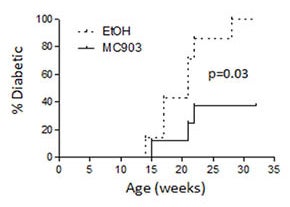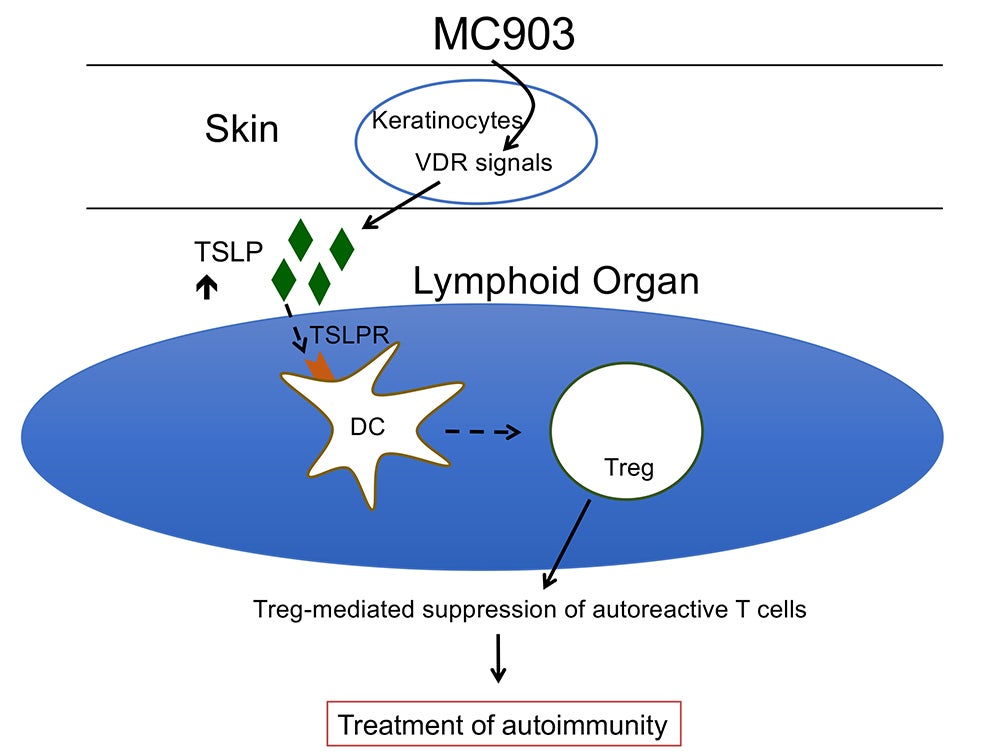When you have an autoimmune disorder, it can feel like you’re not safe in your own body. Your own immune system attacks healthy tissues causing chronic pain, mobility issues, and other debilitating symptoms. Common drugs to alleviate (not cure) your condition can often cause their own set of issues, which are both painful and costly.

Dr. Taku Kambayashi and his lab at the University of Pennsylvania Perelman School of Medicine are working to help patients take the power back from their autoimmune diseases and improve their quality of life. Through studies in mouse-models across four common autoimmune disorders, Dr. Kambayashi has shown that while our bodies may be the source of suffering, they can also produce factors that promote the expansion of cells that alleviate autoimmune diseases.
Understanding Autoimmune Diseases
More than 50 million Americans live with an autoimmune disorder, including type I and II diabetes, multiple sclerosis, Crohn’s disease, lupus, and more than 100 additional lifelong and sometimes deadly diseases.
According to Penn Medicine, “Autoimmune diseases or disorders occur when the body’s immune system cannot distinguish between healthy body tissue and an antigen or foreign substance. Normally, the immune system reacts to viruses, bacteria or foreign harmful substances that invade the body. An autoimmune disease causes the body’s immune response to destroy healthy body tissue by mistake or to react to healthy tissue it would normally ignore.”
There is no blanket cure for autoimmune disorders, only treatments to suppress the immune response and relieve symptoms. The drugs commonly administered to alter the immune response are not location specific, and often lead to severe side effects. Moreover, intravenous injections of the same drugs are burdensome for patients and drive additional cost and risks.

A Pathway to Relief
As the Associate Professor of Pathology and Laboratory Medicine, Dr. Kambayashi’s research focuses on T cells (a type of white blood cell) and how they can be leveraged in combating infections, autoimmune disorders, and cancer. He is the lead inventor or collaborator on fifteen patents focused on this topic.
One subset of T cells Dr. Kambayashi studies is called regulatory T cells, or Tregs for short. “As the name suggests regulatory T cells are T cells which have a role in regulating or suppressing other cells in the immune system. Tregs control the immune response to self and foreign particles (antigens) and help prevent autoimmune disease.” Immunology.org
Many inflammatory diseases are mediated by inappropriately activated T cells. Tregs limit such inappropriate T cell activation, and prevent inflammatory diseases.
In theory, by increasing the number of Tregs, you would increase the body’s ability to suppress inflammation caused by autoimmune disorders.
But that leads to be big question – how do you increase the number of Tregs?

Dr. Kambayashi has discovered that the topical administration of a vitamin D3 analog MC903 induces skin cells (keratinocytes) to secrete thymic stromal lymphopoietin (TSLP) into circulation, which then systemically increases the number of Tregs.
MC903 can be absorbed through a skin patch, which thereby triggers TSLP production, followed by an expansion of the beneficial Tregs. The transdermal patch provides a promising approach for treatment autoimmune and inflammatory diseases, because MC903 has limited systemic absorption and half-life, thereby preventing issues commonly seen in other drugs. It is currently used for psoriasis treatment.

Next Steps
As of this writing, Dr. Kambayashi’s research has been in mouse models with studies on type I diabetes, multiple sclerosis, atherosclerosis, and rheumatoid arthritis. The results and data that have been generated show a lot of promise, and he is seeking licensing partners to collaborate in further developing and commercializing the research.
Through partnerships and studies focused on multiple diseases, Dr. Kambayashi is on the path for an affordable, easier to use, and localized treatment for autoimmune disorders.
For more information on Dr. Taku Kambayashi’s research, view our technology summary on Technology Publisher or contact Lina Axanova at axanova@upenn.edu